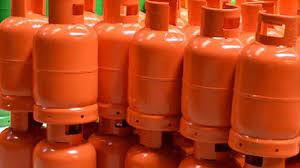The role of women in driving LPG adoption for clean cooking gas as an alternative to biomas cannot be over-emphasised.
This enhances gas penetration and underscores one of the main thrusts of the decade of gas policy.
To this end, the Minister of State for Petroleum Resources, Timipre Sylva, says the Federal Government has been deliberately implementing gender-friendly policies that will promote women inclusion in the oil and gas industry.
He stated this at the 2022 Nigerian Women in Oil and Gas Conference organised by the Nigerian Content Consultative Forum, NCCF, Diversity Sectoral Working Group, DSWG, with the theme: “Leveraging Opportunities for Women in the Oil and Gas Industry.” held recently in Lagos.
Sylva noted that women made up 48 per cent of the global work force, they only accounted for 22 per cent of the labour force in the oil and gas sector.
“However, the Nigerian government has been deliberate in gender-friendly policies. This is aimed at increasing access to funding, award of contracts and support for research and development in the interest of women operators in the Nigerian oil and gas industry”, he said.
“This government, through its Nigerian Content Development and Monitoring Board, NCDMB- Nigerian Export-Import Bank, NEXIM, partnership, has rolled out a 40 million dollar fund to empower women in the oil industry”, he added.
“This is separate from the 300 million dollar Nigerian Content Initiative, NCI, Fund, which is equally available to women (and men) who meet the criteria,” Sylva maintained.
The minister stated that the industry played a pivotal role in the socio-economic development of the world and would continue to play this key role in spite of the growing call for energy transition.
According to him, harnessing the natural endowment, strength, intuition, knowledge and expertise of women for the growth of the industry has become a fundamental truth.
He noted that women needed one another to survive the realities of the sector, whether locally or internationally.
“It is estimated that women occupy about 50 per cent of non-technical positions at entry level compared to only 15 per cent of technical and field role positions. Gender diversity and inclusion decreases with seniority. There is only a tiny proportion of women in executive positions”, stated the Minister.
“The percentage of women in the industry drops over time from 36 per cent to 24 per cent between the middle and executive level, a recent study by Global Energy Talent Index Report has indicated.”
He, therefore, urged the various women groups in the sector to work together in championing the course of women in the industry.
Speaking in the same Vein, the Executive Secretary, Nigerian Content Development and Monitoring Board, Simbi Wabote, said that the enactment of the Petroleum Industry Act 2021 had created several opportunities that could be leveraged to increase the participation of women in the sector.
He said they included administration of the various Trusts and Funds contained in the Act, opportunities in National Gas Expansion Programme and the almost completed Industrial Parks in Bayelsa and Cross River.
The NCDMB boss also called for an active inclusion of women in the administration of various trusts and funds contained in the Petroleum Industry Act, PIA, 2021.
“The PIA 2021 in place, active inclusion of women in the administration of these funds should be leveraged, saying that the Act provides for the establishment of Host Community Development Trust (the Trust) and the Host Community Development Trust Fund for communities”, he opined.
The PIA 2021 according to him also prescribed financial contribution to an environmental remediation fund for the rehabilitation or management of negative environmental impacts of petroleum operations.
According to him, these opportunities require the active involvement of our women, pointing out that efforts aimed at repositioning women as formidable players in key areas, including the oil and gas industry, are already yielding positive results.
The NCDMB boss said Nigerian women in energy is a strategic response to build a robust and sustainable stream of professionals and businesses that are adaptable to changing needs in the energy landscape.
On her part, Chairman, Board of Directors, Nigerian National Petroleum Company, NNPC, Ltd, Margery Chuba-Okadigbo, said it was imperative for more women to participate in the oil and gas space because of its significant contribution to the economy.
She, therefore, urged the leadership of the NCDMB to consider replicating the board’s Project 100 Companies by creating a model exclusively for women-owned Nigerian companies
Earlier, Alero Onosode of the NCCF DSWG said the oil and gas industry was technical, capital intensive and of high risk, adding that women should leverage the opportunities by being always resilient and prepared.
Onosode said women were making significant progress in the industry, especially with the appointment of Chuba-Okadigbo as the NNPC board chairman and Elohor Aiboni as the Managing Director of Shell Nigeria Exploration and Production Company.

























